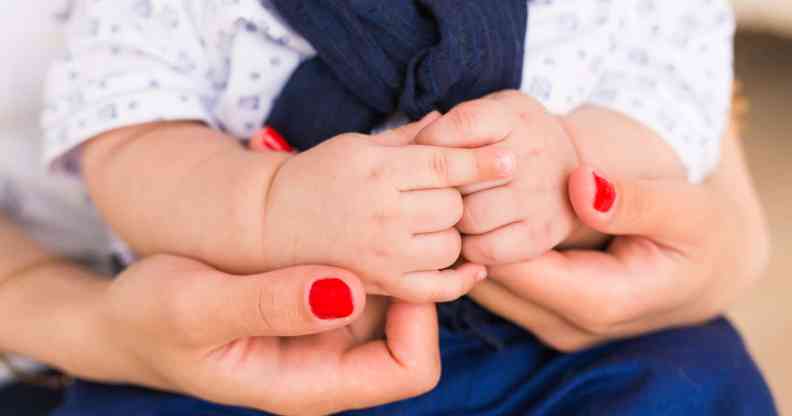Trans woman banned from seeing her kids had her human rights violated, top court rules

A trans woman was blocked from seeing her children, solely because of her gender identity (Stock image: Envato)
Russia discriminated against a trans woman and violated her right to family life by denying her any contact with her children, Europe’s leading human rights court has ruled.
In a landmark judgement released on Tuesday (6 July), the European Court of Human Rights unanimously ruled in favour of a divorced trans woman who was blocked by Russian domestic courts from seeing her two young children back in 2017.
It marks the first time the court has found a violation of the European Convention on Human Rights’ prohibition of discrimination (Article 14) on the basis of a person’s gender identity. Russia ratified the convention in 1998 and is therefore under the court’s jurisdiction.
“It was clear from the domestic decisions … that the influence of the applicant’s gender identity on the assessment of her claim had been a decisive factor leading to the decision to restrict her contact with her children,” the court said.
“The applicant had therefore been treated differently from other parents who also sought contact with their estranged children, but whose gender identity matched their sex assigned at birth.”
Reacting to the judgement, executive director of TGEU (Transgender Europe), Masen Davis, said: “The kids are alright – there is nothing wrong with being a trans parent! Today, we celebrate this important message together with all trans families.
“Every fourth trans person in Europe is a parent. Today’s judgement gives legal security to many of them.
“We congratulate the applicant for having gone all the way to Strasbourg to defend her right to be the best possible parent to her children.”
The woman, identified only as AM, separated from her wife after seven years of marriage and gained legal gender recognition in 2015, according to court documents.
The following year AM’s wife denied her access to their children, born in 2009 and 2012, with a district court claiming her visits would have a “negative impact on the mental health and psychological development” of the children.
The European Court, however, noted that the domestic courts had failed to demonstrate that the restriction was justified and well-substantiated.
“Too often we are hearing the best interest of the child being abused as an argument to limit the rights of LGBTI people,” said Evelyne Paradis, Executive Director of ILGA-Europe.
“We are glad to see the Court clearly rejecting such an abusive argument, and instead naming very concrete responsibilities for state authorities in ensuring the best interest of the child. Spreading hatred, misinformation and splitting loving parents from their children is not in the best interest of children.”
Is the trans woman’s case legally binding?
The woman was awarded €9,800 (£8,377) in damages, even though she had not asked for compensation. While the case sets an important legal precedent, it is unclear if AM has actually been reunited with her children.
Judgments in the European Court of Human Rights are technically binding and EU countries are under an obligation to comply with them – but Russia has long an uneasy relationship with the court.
Russia joined the Council of Europe in 1996, and the country was found to have violated the European Convention on Human rights a total of 173 times in 2020 alone. In several cases, such as those of Alexei Pichugin and Vasily Alexanyan, Russia has simply ignored the European Court judgments, effectively nullifying its authority.
It’s set a troubling trend as several other nations, including Turkey, Poland and Moldova, followed suit in choosing to selectively ignore scores of ECHR rulings over the past decade.
Whether Russia will choose to abide by the latest ruling is uncertain as the country continues its regressive slide into anti-LGBT+ hate.
“We call upon the Russian authorities to respect today’s decision and immediately end the discrimination of trans families,” Paradis said.

